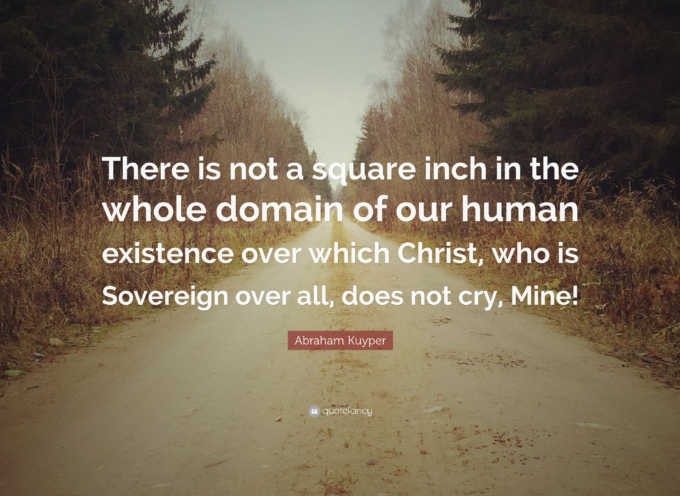Few commandments are more immediately relevant to our Western and American ills than the sixth, often translated as, “You shall not murder” but better translated as, “You shall not kill unflawfully” (Ex 20:13). God created all things, living and non-living, and for that reason we should give all things their proper respect. Most importantly, God cares for living beings, and so should we.
Among living things, human beings are of special significance to God. He created man and woman in his image (Gen 1:27). Our status as imagers endows us with a great dignity and a great humility. Our great dignity is that, unlike anything else in creation, we are created in the image and likeness of God to represent him on earth. Our great humility is that we are not God and should never give ourselves permission to act like him. Thus, we should never give ourselves permission to shed the blood of an innocent imager because doing so reveals our own arrogance and our refusal to recognize the other person’s dignity.
That is why the Bible is quite explicit that we should not shed innocent blood:
6 “Whoever sheds man’s blood,
By man his blood shall be shed;
For in the image of God
He made man.” (Gen 9:6)
The story of King David’s murder of Uriah is an excellent case in point. Even God’s anointed King wasn’t exempt from this law. and as punishment God cursed David by taking the life of David’s baby and cursed David’s family, who would never escape the edge of the sword (2 Sam 12:9-10). Thus, although we owe to God alone an absolute reverence for his life, and although there are situations in which we are justified in taking another person’s life, we do owe other human beings a proper reverence.
Unlawful killing can take several forms: Murder is when one person kills another person premeditatively and intentionally. God punished David for murdering Uriah, and Ahab for murdering Naboth. Voluntary manslaughter is when one person kills another person intentionally but not premeditatively. For example, a husband sees the man who is sleeping with his wife, flies into a rage, and beats him to death. Jacob condemned his sons Simeon and Levi for the voluntary manslaughter of Shechem (Gen 34:25; 49:6). Involuntary manslaughter or reckless homicide occurs when one person’s carelessness causes another person to die. For example, a person is texting while driving and accidentally strikes a pedestrian. In the Old Testament, Mosaic legislation held liable a builder who cut costs by not installing a railing on a rooftop, if somebody fell off the roof and died (Deut 22:8). All three are forbidden by the sixth commandment.
At the level of public life, perhaps abortion is the most significant, widespread, and detrimental form of unlawful killing. Abortion is the unlawful killing of the unborn beings, the weakest and most vulnerable among us. Instead of killing unborn beings, we should be careful to protect them. Numerous Bible passages identify unborn beings as persons created and known by God (Jer 1:5; Lk 1:26-56; Ps 139:13-16; Job 10:8-12). For this reason, the overwhelming consensus of Christians—including pastors and theologians throughout church history, have forbidden abortion. (Click here to read a brief article listing eight reasons abortion is detrimental to society.)
The best of modern science makes it clear that the unborn being is a human person from the time of conception. This is affirmed by medical organizations such as The American Association of Pro-Life Obstetricians and Gynecologists, an association of nearly 3,000 pro-life doctors. It is also affirmed by the most recent scientific research; the unborn being is neither a part of the mother’s body (it has its own DNA), nor a parasite in the mother’s body (in the early stages, the unborn being is dependent but not parasitical), or a piece of property (being a person with his or her own DNA,). Instead, the unborn being is a human person created by God. (For further exploration of my claims, click here.)
The negative consequences of killing an unborn baby are many and quite serious. As I argued in this article, Roe v. Wade and consequent rulings are like an environmental disaster on the moral ecology of our nation. Abortion is harmful for babies, women, men, marriages and families, justice and equality, checks and balances, cultural institutions, and society at large.
As Christians, we should neither weary nor rest until our nation rectifies its greatest legalized injustice, its denial of liberty and equality to an entire class of people—unborn human persons. Neither should we neglect to highlight God’s grace toward any person who has taken part in any sin—including abortion. Toward abortive mothers, God offers his Son to liberate them from residual guilt; to fathers who approved of, paid for, or pressured an abortion, God offers himself as a Father whose Son was killed to set them free; to medical personnel who assist in abortions, God offers himself as the Great Physician who offers eternal life to those who have caused temporal death. Just as God has extended his grace to me—a great sinner—so he offers grace to those who have committed abortive sins.
Furthermore, the sixth commandment speaks against euthanasia and physician-assisted suicide. Physician-assisted suicide occurs when a member of the medical community facilitates a patient’s death by providing the necessary means and information for the patient to kill himself or herself. By contrast, euthanasia occurs when one person administers a lethal agent to kill the patient and put an end to his or her mental or emotional suffering. Both practices go against the sixth commandment. God takes pleasure in human life. He expresses deep displeasure when one human being takes the life of an innocent other (Gen 4:10-11). Unlawful killing offends him because it is an affront to God’s own image (Gen 9:5-6).
Additionally, the sixth commandment prohibit murderous attitudes. Jesus taught that calls his brother a fool is sinning (Mt 5:22). The apostle John made this clear when he declared, “Whoever hates his brother is a murderer” (1 Jn 3:15). Jesus likewise repeatedly made clear that our duty is to honor people by treating them with respect and by exercising patience and mercy towards them. Conversely, we should avoid instances of wrath, vindictiveness and vitriol that violate Jesus’ command.
There are some forms of killing that are not unlawful. Consider the biblical teaching about self-defense found in Exodus 22:
If a man steals an ox or a sheep, and slaughters it or sells it, he shall restore five oxen for an ox and four sheep for a sheep. 2 If the thief is found breaking in, and he is struck so that he dies, there shall be no guilt for his bloodshed. 3 If the sun has risen on him, there shall be guilt for his bloodshed. He should make full restitution; if he has nothing, then he shall be sold[a] for his theft. 4 If the theft is certainly found alive in his hand, whether it is an ox or donkey or sheep, he shall restore double. (Ex 22:1-4).
Notice that the passage makes a distinction between when a homeowner defends against a thief at night and during the day. If he kills the thief at night, he is not guilty. But if he kills him during the day, he shall be judged guilty. It appears that the passage is forbidding the disproportionate defense of one’s property, given that during the daylight, the homeowner could see that the thief doesn’t have a weapon or doesn’t intend to kill the homeowner.
Similarly, capital punishment is acceptable. Scripture also teaches that the government may punish a murderer by putting the murderer to death. For Old Testament Israel, it was necessary for the murderer to be put to death. “Whoever sheds man’s blood, By man his blood shall be shed; For in the image of God He made man” (Gen 9:6). In the New Testament, it remains true that God gives the government the sword to bring justice to evildoers (Rom 13:4) although it is nowhere stated that the government must execute murderers.
Finally, warfighting is acceptable if the war is justified and the means of killing are justified. (For a series of articles on justified warfare, click here.) Given that God instructs the government to bear the sword (Rom 13:3-5) and that Jesus used violence to cleanse the temple (Jn 2:15-16) and told his disciples to carry swords in case they needed them (Lk 22:36); and given that great injustices and evils are perpetrated by international states and non-state actors, sometimes it is incumbent upon our nation to engage in the lawful killing that characterizes a just war.
In summary, the sixth commandment communicates God’s love for humanity and the seriousness with which he takes human life. Thus, we should be careful to take human life as seriously as he does. We must love the Lord God and allow that love to overflow into love for our neighbors—whether those neighbors are near or distant.
Subscribe
Never miss a post! Have all new posts delivered straight to your inbox.







